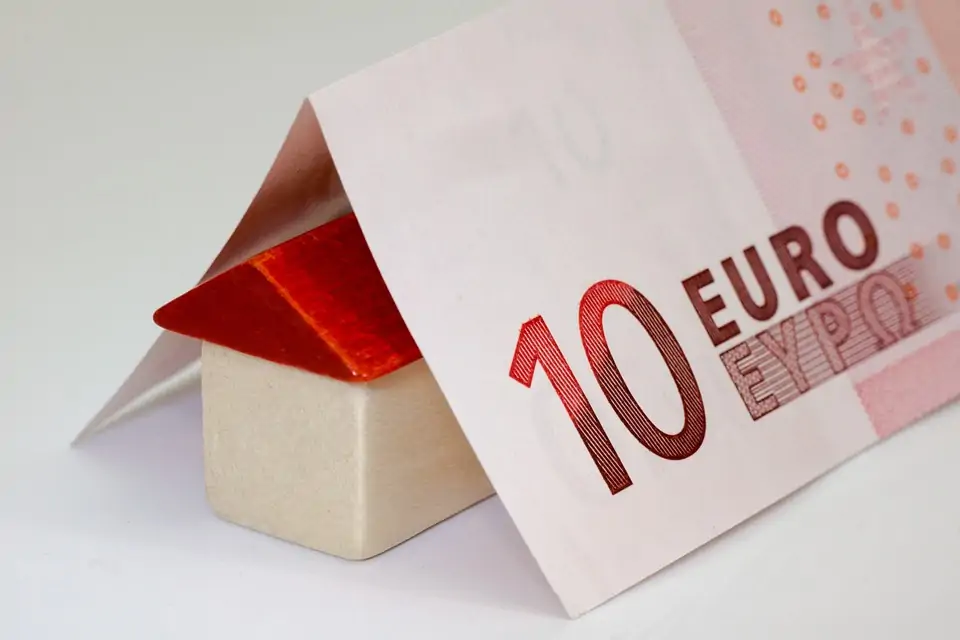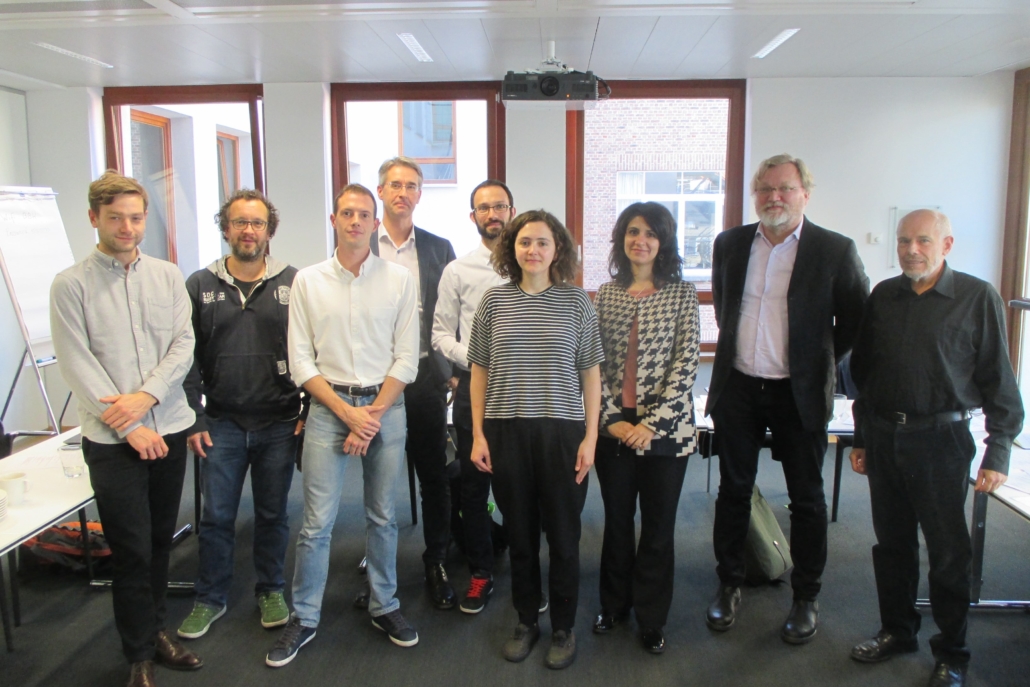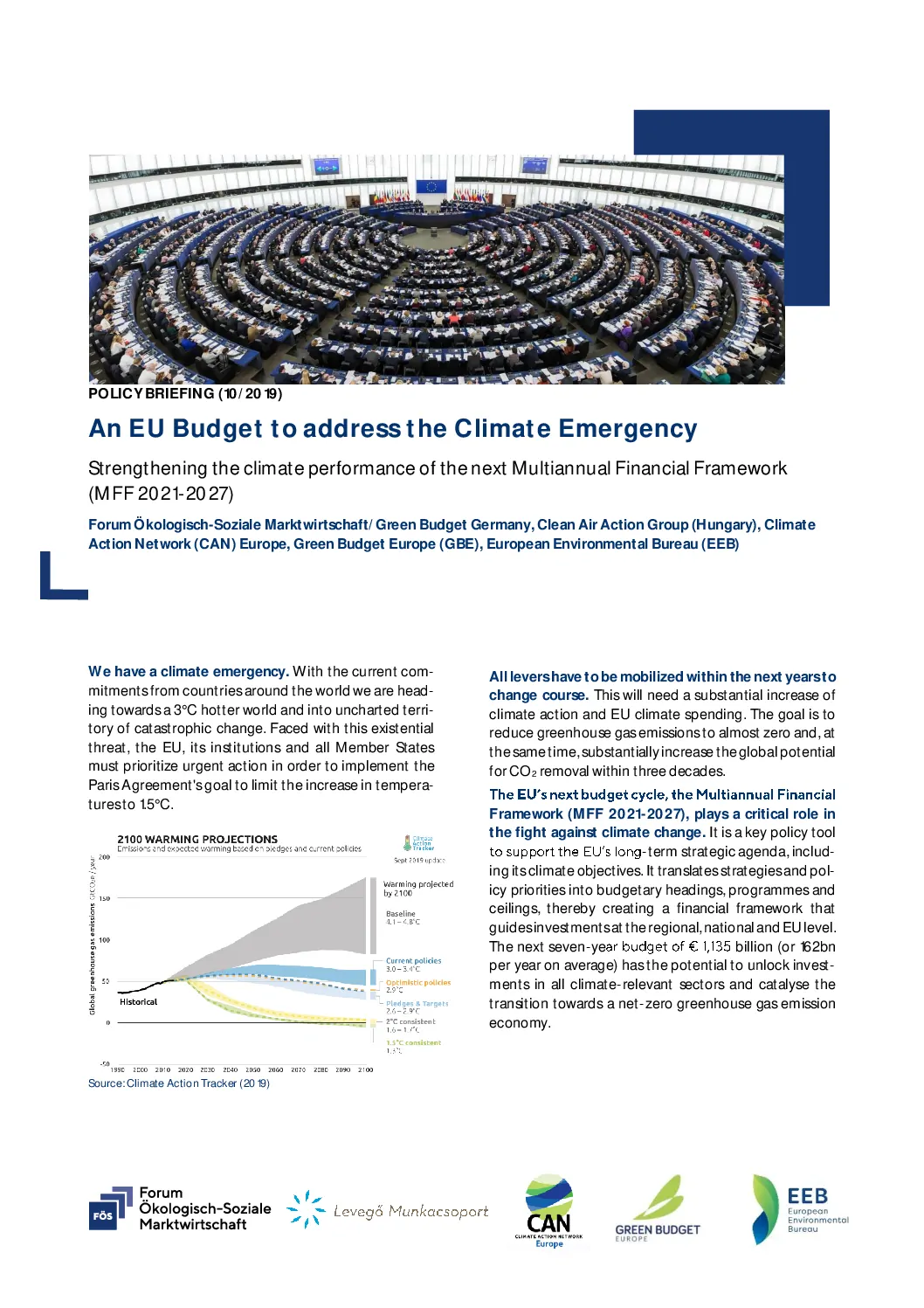A Multiannual Financial Framework (MFF) for the Climate
The project is completed. The purpose of the MFF for the Climate project was to propose a substantial improvement of EU funds and spending programmes towards climate protection. It engaged citizens and civil society organisations (CSOs) in a participatory process so that they could actively contribute to making the next MFF climate friendly. The project gave out policy recommendations and specifically briefed decision makers involved in the MFF process.

Project info
-
09/18 - 08/20
-
273,357.00 €
Contact info
Patrick Ten Brink
- Clean Air Action Group (CAAG)
- Climate Action Network Europe
- Forum Ökologisch-Soziale Marktwirtschaft e.V.
Project
The project looks at lessons learned from the current MFF (2014–20). It assesses the impacts that the new legislative proposals would have on Member States and on future national and regional spending programmes. It also makes recommendations on said legislative proposals and on the investment priorities of the national and regional EU funds, and promotes stakeholder involvement in the programming and planning of future EU funds.
During the course of the project, workshops will be delivered in Berlin and Warsaw and a conference held in Brussels. To enable MEPs to follow up on and ensure the sustainability of EU funding, the project implementing partners will roll out targeted outreach (e.g. around the European Parliament elections).
To maximise the project’s impact at the national and EU levels, its results will be widely communicated to different stakeholders (e.g. the European Commission, the European Parliament, national governments, business groups, trade unions, civil society and the media).

Background
The EU’s long-term budget, the so-called Multiannual Financial Framework (MFF), constitutes the political and legal framework, which defines the EU’s spending priorities over a multi-year period. The MFF “translates” EU policies into real implementation by financing public services or investing in infrastructure projects. The MMF can thus be a key instrument for directing Europe towards a greener and more sustainable future.
State of Results
- The project successfully included a wide range of civil society organisations from all over Europe in its outreach campaign for a greener EU budget. Participants were involved in the process through questionnaires, interviews, working groups, workshops in Berlin and Warsaw, webinars and a conference in Brussels.
- The project published a report Climate Change and the EU Budget. Its main message was that the MFF 2021-2027 is the last investment cycle to help change course on climate performance. It calculated that additional investments in climate action of around €180bn to €270bn per year were needed to meet the EU 2030 climate and energy targets and it stated that all direct and indirect fossil fuel subsidies must be removed. The report also recommended to strengthen financial and strategic links between MFF, NECPs and the European Semester and to insist on ‘climate proof’ Partnership Agreements and Operational Programmes.
- The project developed a briefing A budget to address the climate crisis on the EU’s plans to fund and boost climate action as part of the EU budget for 2021-2027. The briefing provides policy guidelines and recommendations for EU institutions and national governments on how to finance a European Green Deal and ensure a smooth transition to a climate neutral economy. The document also advises civil society organisations on how to engage in the process and ensure a consistent and independent monitoring of progress in the coming years.
- Project results and recommendations for the future MFF were distributed to various decision makers and policy leaders at the EU-, national and regional level. The main demands were also reiterated in several letters to member states, including a Letter to Heads of State before a Council meeting in Brussels in February 2020 and a Letter to EU Environment Ministers in December 2019.
- Climate change mitigation now does play a stronger role in the programmes of the MFF and the recovery plan. The quota for climate-related expenditure in the EU budget was indeed increased from its former level of 20 percent to 30 percent.
Last update: July 2024

